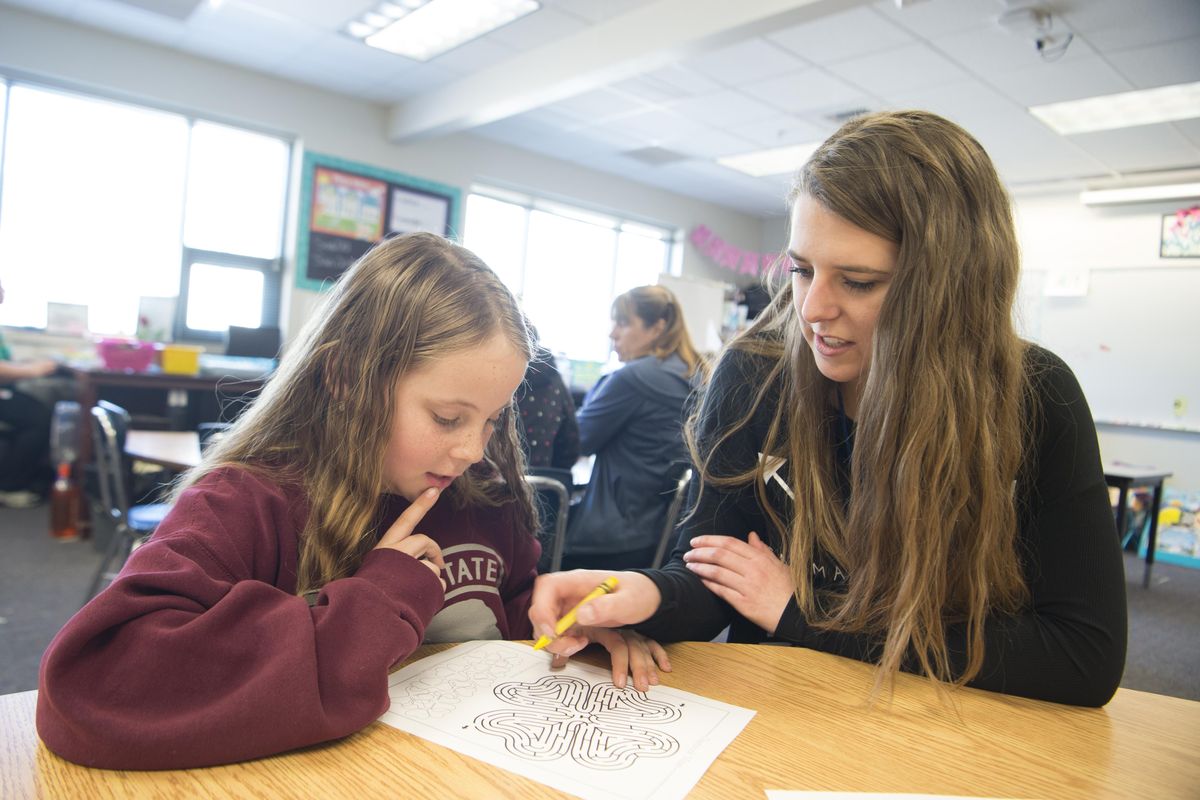Raising resilience: Local mentors provide safety net for kids

Violence erupts in the home. A parent lands in jail. Bullies taunt online.
Childhood isn’t a shield against hurts and trauma. Whether it’s facing a bad test score or cyberbullying, youth who are more resilient come out the other side stronger.
A caring adult can help children bounce back when bad things happen, experts say.
In fact, a close connection can make a profound difference over a lifetime, said Kent Hoffman, a Spokane psychotherapist and co-founder of Circle of Security International, which offers early childhood intervention models. More than 50 years of research shows the power of a positive relationship.
“You can have a child in a family of five siblings, all who are highly dysfunctional,” Hoffman said. “Then you interview one when they’re in their 40s and that one has become extremely resilient; they’re a school teacher, and everybody else is in prison. You ask, ‘How’d you turn out well?’
“This answer is always, ‘Mr. Jones in the fourth grade or Mrs. Smith in the sixth grade.’ It’s so profound to know that one solid human connection can make all the difference.”
Even someone who visits at school can connect solidly with a child, he added. “When a mentor shows up every week, you start to think you’re pretty important to that person, and that makes a huge difference. ”
In Spokane County, about 365 volunteers with the PrimeTime Mentoring program offer supportive one-on-one time with kids in schools.
The mentors, spending part of a lunch hour with a student once a week, are trained to understand resilience protective factors and recognize adverse childhood experiences, said Rachel Millsap, a volunteer coordinator for Communities in Schools of Spokane County.
Perhaps it’s support for a child whose parents are divorcing or because that child has witnessed domestic violence. Sometimes, volunteers are paired with children who have parents in prison, Millsap said. Other mentors swoop in when a teacher notices a child just needs extra attention.
“The student has been identified by the school because they’re exhibiting some sort of risk factor, or simply they’re just needing an adult friend,” she said.
Among six resilience protective factors, Millsap said mentors naturally support most: Nurturing and attachment, while listening and responding in a supportive way; building social connections in the community; helping children interact positively and manage emotions; and providing for a child’s basic needs.
“These are just things that help build resilience in the students.”
Regarding those basic needs, a mentor might be the only person a student will confide in to say they’re hungry, or need a coat, or homeless, or needing to see a doctor, Millsap said.
“The mentor can find the correct person in the school to fill that need for the student,” she said. “Some of these students are dealing with some pretty hard stuff, but by being that positive adult and showing up for them week after week, they’re naturally building that resilience.”
Two of the protective categories focus on parents. Those factors are supporting parents’ resiliency and ability to build relationships with their children and others, along with educating parents about child development and behavior.
Millsap said she hears success stories regularly about the impact of volunteer mentors going into schools. One mentor has worked two years with a child who struggled with absenteeism. The student recently considered calling in sick but came to school so she could see her mentor.
“Our longest matches are on their eighth year together with their students,” Millsap said. “Three of those students started with their mentors in elementary school, and they’re juniors in high school now. The mentors are so looking forward to seeing their students graduate next year.
“Seeing the growth year after year speaks volumes about the difference of one person showing up.”
Kate Lund, a Seattle psychologist, emphasizes seven principles to boost resilient children. She’s written the book, “Bounce: Help Your Child Build Resilience and Thrive in School, Sports and Life.”
Her principles include: Tolerating frustration and managing emotions, navigating friendships and social pressures, sustaining focus and attention, developing courage, building motivation, finding confidence and creating optimism.
While facing social pressures, youth need to understand individual differences, Lund said.
“Kids really need to know how to be a friend, and how to stand up for themselves when friendships go off track,” she said. “Help them build a strong foundation in the social-emotional skills; self-awareness for example, and the ability to accept and understand individual differences.”
That view also helps if bullying occurs, she said.
“It can help those kids who are bullying to understand and appreciate not everyone is like them, and that it’s really important to be tolerant. It helps those who are being bullied to get in touch with their strengths and use those strengths as an advantage to move away from those bullying them.”
If children struggle with test-taking, adults can remind youth to think about how they’ve prepared and studied as well as they can, and remind them to try deep-breathing and clearing of the mind to relax, according to Lund.
Children can learn to identify their strengths, whether in music or swimming. She said adults can help children understand that building any skill requires hard work and persistence. As that pays off, it helps build a child’s self-confidence.
Helping a child break down goals is a good idea as well, Lund said.
“By creating smaller, more attainable goals, it’s an important part of resilience because kids aren’t always going to succeed the first time,” Lund said. “Learning to try something from a slightly different angle takes focus and attention. It needs to be done in a supportive environment.”
As children face challenges or difficulties, adults can suggest a focus on what is going well.
“What is going well in the classroom, with friends, or on the ball field?” she said. “Through conversations, cultivate a sense of gratitude. Challenge is inevitable. Look for opportunities to help children gain more resilience.”